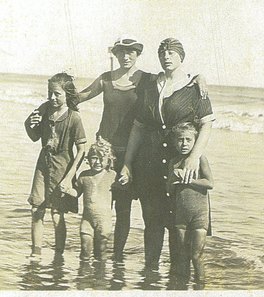
“Unexpected?” you might say, and some people did. But she did not die at an age that was the norm for her generation. She had outlived so many peers and younger relatives, I was sure she would live to be 100, and I was disappointed that she did not.
What difference should it make how old someone is when they die? Shouldn’t we extend to the bereaved the same sympathy and level of support, no matter how old or young the deceased?
In retrospect, I did not get much sympathy when my grandma died. One colleague said upon hearing of her death and her age, “Didn’t you expect her to die Robbie?”
Just because someone has lived a long life, does that mean the loss is any less painful? No matter how old someone is when they die, the bereaved deserve the same consideration you would extend to anyone who has lost a loved one. Age doesn’t diminish the pain of loss and the mourning process is still the same.
Photo courtesy of author
Robbie Miller Kaplan is an author who writes from a unique perspective as a mother who has lost two children. She has written How to Say It When You Don't Know What to Say, a guide to help readers communicate effectively when those they care about experience loss, now available as e-books for "Illness & Death," "Suicide," "Miscarriage," "Death of a Child," "Death of a Stillborn or Newborn Baby," "Pet Loss," "Caregiver Responsibilities," "Divorce" and "Job Loss." All titles are in Amazon's Kindle Store
 RSS Feed
RSS Feed
